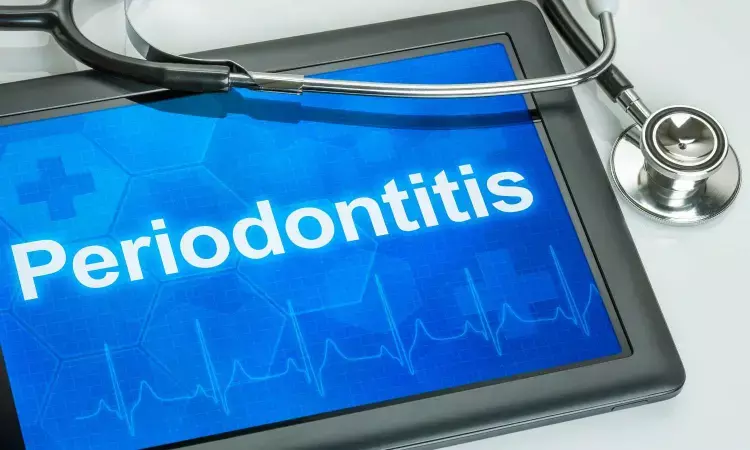- Home
- Medical news & Guidelines
- Anesthesiology
- Cardiology and CTVS
- Critical Care
- Dentistry
- Dermatology
- Diabetes and Endocrinology
- ENT
- Gastroenterology
- Medicine
- Nephrology
- Neurology
- Obstretics-Gynaecology
- Oncology
- Ophthalmology
- Orthopaedics
- Pediatrics-Neonatology
- Psychiatry
- Pulmonology
- Radiology
- Surgery
- Urology
- Laboratory Medicine
- Diet
- Nursing
- Paramedical
- Physiotherapy
- Health news
- Fact Check
- Bone Health Fact Check
- Brain Health Fact Check
- Cancer Related Fact Check
- Child Care Fact Check
- Dental and oral health fact check
- Diabetes and metabolic health fact check
- Diet and Nutrition Fact Check
- Eye and ENT Care Fact Check
- Fitness fact check
- Gut health fact check
- Heart health fact check
- Kidney health fact check
- Medical education fact check
- Men's health fact check
- Respiratory fact check
- Skin and hair care fact check
- Vaccine and Immunization fact check
- Women's health fact check
- AYUSH
- State News
- Andaman and Nicobar Islands
- Andhra Pradesh
- Arunachal Pradesh
- Assam
- Bihar
- Chandigarh
- Chattisgarh
- Dadra and Nagar Haveli
- Daman and Diu
- Delhi
- Goa
- Gujarat
- Haryana
- Himachal Pradesh
- Jammu & Kashmir
- Jharkhand
- Karnataka
- Kerala
- Ladakh
- Lakshadweep
- Madhya Pradesh
- Maharashtra
- Manipur
- Meghalaya
- Mizoram
- Nagaland
- Odisha
- Puducherry
- Punjab
- Rajasthan
- Sikkim
- Tamil Nadu
- Telangana
- Tripura
- Uttar Pradesh
- Uttrakhand
- West Bengal
- Medical Education
- Industry
Altered blood markers detected in individuals with periodontitis, unravels study

Individuals with periodontitis have altered concentrations of various proteins in their blood, according to a new study from Umea University, Sweden. These findings pave the way for research into biomarkers for periodontitis and the underlying causes of the disease. Severe periodontitis affects about one in ten Swedes and, in addition to tooth loss, can also be linked to other diseases.
“By identifying the blood biomarkers that may be crucial for the development of severe periodontitis, we can proceed to research drugs that specifically aims to slow down the disease progression,” says Pernilla Lundberg, periodontist and professor at the Department of Odontology at Umeå University, who led the study.
Periodontitis involves inflammation of the gums that leads to the breakdown of the supporting tissues around the teeth and can, in severe cases, result in tooth loss. Individuals with severe periodontitis are also more often affected by other serious diseases, such as cardiovascular disease and rheumatism, but the mechanisms behind these connections remain unclear.
Researchers at Umeå University have now shown that individuals with periodontitis exhibit a unique inflammatory protein profile in their blood. The findings indicate, among other things, that severe periodontitis is associated with significantly reduced levels of a protein called EGF -epidermal growth factor, which is crucial for wound healing. The levels of a protein associated with cardiovascular disease, OLR-1 -oxidized low-density lipoprotein 1, are also significantly lower in individuals with severe periodontitis compared to healthy individuals.
Today, one in ten Swedes suffers from severe periodontitis, a number that has remained unchanged since the 1970s, despite extensive efforts in preventive dental care and a marked improvement in overall dental health. Currently, there are no methods to predict which individuals are at risk of developing severe periodontitis.
“Thanks to the large number of participants in the study, the results are highly accurate, and we can use the material to continue finding more clues,” says Pernilla Lundberg.
Previous research has shown that there is a strong hereditary component behind periodontitis, but the specific genes involved are still unknown. The researchers at Umeå university are now analyzing DNA from all participants in the study to identify genetic changes that may be linked to the development of severe periodontitis. By combining genetic and biological markers for periodontitis, it may become possible in the future to identify individuals at high risk of developing the disease. This would also enable tailored treatments that target the specific factors crucial for the development of periodontitis and the associated disease risks.
The current study, PerioGene North at Umeå University is based on extensive data collected from approximately 1,000 individuals within the Public Dental Service in the County counties of Västerbotten and Gävleborg between 2007 and 2019.
Reference:
Wänman M, Betnér S, Esberg A, et al. The PerioGene North Study Uncovers Serum Proteins Related to Periodontitis. Journal of Dental Research. 2024;103(10):999-1007. doi:10.1177/00220345241263320
Dr Kamal Kant Kohli-MBBS, DTCD- a chest specialist with more than 30 years of practice and a flair for writing clinical articles, Dr Kamal Kant Kohli joined Medical Dialogues as a Chief Editor of Medical News. Besides writing articles, as an editor, he proofreads and verifies all the medical content published on Medical Dialogues including those coming from journals, studies,medical conferences,guidelines etc. Email: drkohli@medicaldialogues.in. Contact no. 011-43720751


